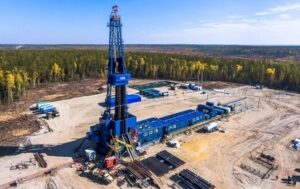
In January-August 2024, JSC Ukrgasvydobuvannya and PJSC Ukrnafta increased commercial gas production by 7.7% (by 0.7 bcm) compared to the same period last year – up to 9.8 bcm.
These data were made public by Oleksiy Chernyshov, CEO of Naftogaz Group, at the European Business Association’s event Global Forecast. Strengthening Unity”.
Chernyshov also clarified that the group’s oil and condensate production during this period amounted to 1.3 million tons, compared to 1.2 million tons in January-August 2023. The plan for the year is 2 million tons, with 1.8 million tons in 2023.
According to him, Naftogaz is one of the largest investors in the country’s economy with an annual volume of investments and capital expenditures of about $2 billion.
Earlier, UGV reported an increase in commercial gas production by 7.2% to 9.26 billion cubic meters over 8 months of 2024.
As reported, Naftogaz’s consolidated quarterly report says that the group’s forecasted commercial gas production for 2024 is expected to reach 14.6 bcm. In February, Chernyshov said that the group’s goal for this year was to get closer to 15 billion cubic meters.

In January-August 2024, Naftogaz Group paid UAH 56.5 billion in taxes to the state budget of Ukraine and another UAH 4.3 billion to local budgets, the company reported on its website on Monday.
According to the company, this is more than 7% of all payments controlled by the State Tax Service of Ukraine.
In particular, in August, UAH 7.2 billion was paid to the state budget and UAH 0.6 billion to local budgets.
“The economic stability of the state during the war is a matter of national security. The Naftogaz Group remains a reliable pillar of the Ukrainian economy in wartime,” said Oleksiy Chernyshov, Chairman of the Board of Naftogaz of Ukraine.
As reported, in 2023, Naftogaz Group companies paid UAH 90.2 billion in taxes, UAH 83.4 billion of which went to the state budget and UAH 6.8 billion to local budgets.
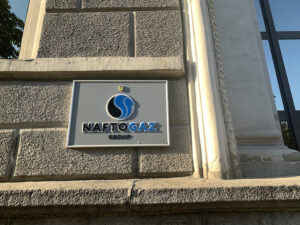
In January-July 2024, Naftogaz Group paid more than UAH 53 billion in taxes, which is almost 10% more than in the same period in 2023, the company’s website reported on Tuesday.
“The group’s enterprises promptly make tax payments to the budgets of all levels. In July alone, Naftogaz paid more than UAH 6 billion to the consolidated budget of Ukraine,” Oleksiy Chernyshov, Chairman of the Board of Naftogaz of Ukraine, was quoted as saying.
In July, UAH 5.5 billion was paid to the state budget and UAH 0.5 billion to local budgets.
As reported, in 2023, Naftogaz Group companies paid UAH 90.2 billion in taxes, UAH 83.4 billion of which went to the state budget and UAH 6.8 billion to local budgets.
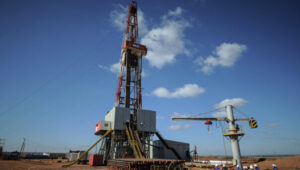
In January-July 2024, JSC Ukrgasvydobuvannya and PJSC Ukrnafta increased commercial gas production by 7% compared to the same period last year, to 8.6 bcm, the press service of Naftogaz Group reports.
According to the press service, these figures also exceed the group’s production plan by 2%.
“The Group’s companies are increasing gas production by launching new high-performance wells, introducing new technologies and working effectively with the old stock. We exceeded our targets by 2%. The work continues not only in the central and western regions, but also in the eastern ones, despite all the military challenges,” said Oleksiy Chernyshev, CEO of Naftogaz.
As reported, in January-June 2024, UGV and Ukrnafta increased commercial gas production by 8% compared to the first half of last year – up to 7.3 bcm.
Naftogaz’s consolidated quarterly report says that the group’s forecasted commercial gas production for 2024 is expected to reach 14.6 bcm. In February, Chernyshov emphasized that the group’s goal for this year is to get closer to 15 billion cubic meters.
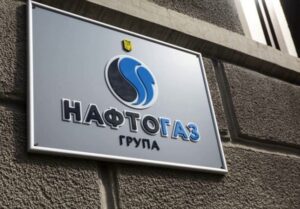
In January-June 2024, Naftogaz Group paid UAH 44 billion in taxes to the state budget of Ukraine and another UAH 3.2 billion to local budgets, the company said on its website on Thursday.
In particular, in June, UAH 8.7 billion was paid to the state budget and UAH 0.5 billion to local budgets.
“Despite the military challenges, we continue to work steadily, save jobs, fill the budgets of all levels and strengthen the economy of our country,” said Oleksiy Chernyshov, Chairman of the Board of Naftogaz of Ukraine.
As reported, in 2023, Naftogaz Group companies paid UAH 90.2 billion in taxes, UAH 83.4 billion of which went to the state budget and UAH 6.8 billion to local budgets.
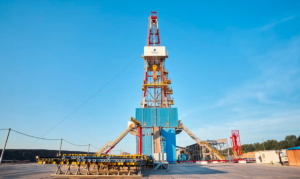
In January-June 2024, Ukrgasvydobuvannya JSC and Ukrnafta PJSC produced 7.3 billion cubic meters of commercial gas, which is 8% more than in the same period last year, the press service of Naftogaz Group reports.
According to the press service, such production figures also exceed the group’s operational plan by almost 2%.
“We managed to achieve this result by launching 41 wells, which is one more than planned. Of these, 14 are high-rate wells producing more than 100 thousand cubic meters of gas per day. Our experts are also constantly analyzing old wells that can be brought back into operation using new technical solutions,” said Oleksiy Chernyshov, CEO of Naftogaz.
Naftogaz’s consolidated quarterly report says that the group’s forecasted commercial gas production for 2024 is expected to reach 14.6 billion cubic meters. In February, Chernyshov said that the group’s goal for this year was to get closer to 15 bcm of production.